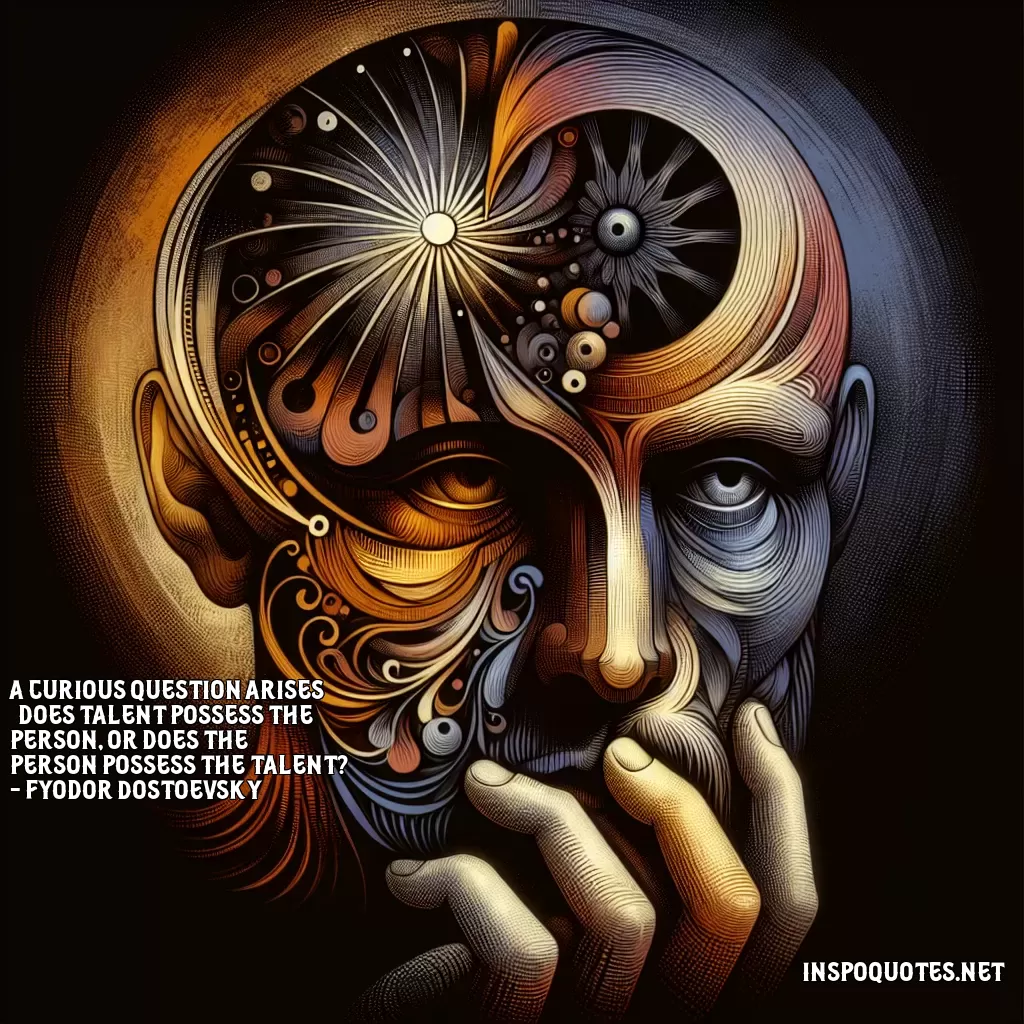
A curious question arises – does talent possess the person, or does the person possess the talent? - Fyodor Dostoevsky
Author: Fyodor Dostoevsky
👁️ 5 views

A curious question arises – does talent possess the person, or does the person possess the talent? - Fyodor Dostoevsky
👁️ 5 views
Fyodor Dostoevsky's quote, "A curious question arises – does talent possess the person, or does the person possess the talent?" delves deep into the complex relationship between individuals and their innate abilities. At first glance, the quote prompts us to reflect on whether talent is an innate part of one's identity or if it's something external that a person can harness and control. If we consider the idea that talent possesses the person, it suggests that the individual's life and direction are largely determined by their innate abilities. In this view, talent is an intrinsic force that can dominate a person’s choices, actions, and identity, shaping their destiny without much room for alteration. This perspective can perceive talent as a kind of guiding spirit or even an obsession that may drive individuals towards certain pursuits, sometimes at the expense of others, indicating that talent dictates the parameters within which a person operates. Conversely, if the person possesses the talent, it implies a sense of agency and control. Here, talent is seen as a tool or resource that the individual can develop, refine, and employ according to their will and decisions. This viewpoint emphasizes the role of personal effort, practice, and determination in nurturing talent. It suggests that, while talent may provide an initial advantage or inclination, it is ultimately subject to one's intentions and actions. Dostoevsky's quote encourages a deeper contemplation of the interplay between innate gifts and personal choice. It raises questions about the nature of success, the importance of nurturing one's abilities, and the balance between destiny and self-determination. By considering both perspectives, one can gain a more nuanced understanding of how talent influences and is influenced by the individual's journey.
Quote By: Fyodor Dostoevsky
Fyodor Dostoevsky was a renowned Russian novelist and philosopher born on November 11, 1821, in Moscow. He is best known for his deep psychological insight and exploration of existential themes in pivotal works such as "Crime and Punishment," "The Brothers Karamazov," and "Notes from Underground." Dostoevsky's literary legacy has profoundly influenced modern literature and philosophical thought, delving into the complexities of human nature and morality until his death on February 9, 1881.
Bio added on: 2025-02-16 11:57:47